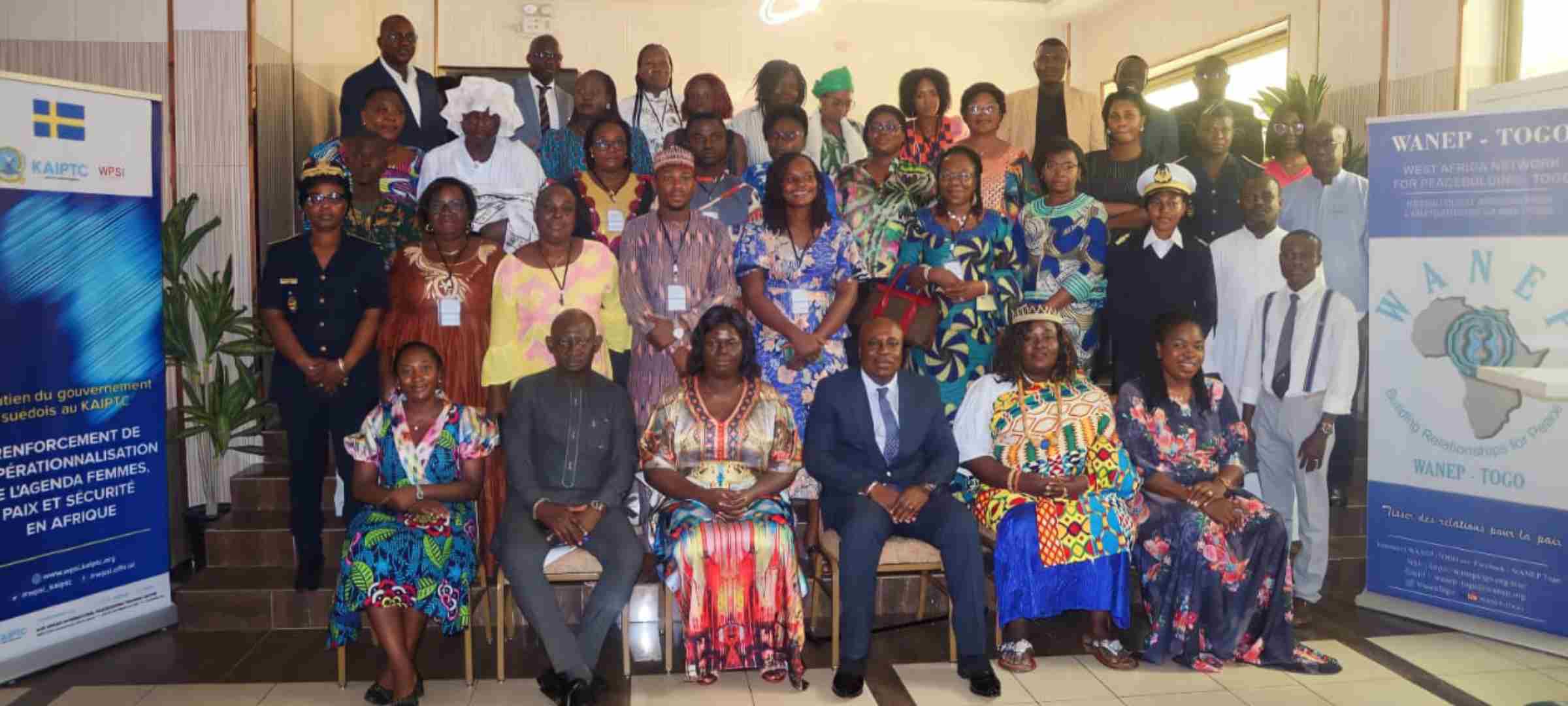Kofi Annan International Peacekeeping Training Centre (KAIPTC) – one of three of West Africa’s internationally acclaimed Training Centers of Excellence (TCE), has collaborated with Togo’s Ministry of Social Action, the Promotion of Women and Literacy, to organize a 5-day training workshop, on the prevention and response to gender-based violence (GBV) in Togo, and Africa at large.
The one-week program, which is also co-organized by the West Africa Network for Peace, Togo (WANEP-TOGO), commenced from Monday 26 September, 2023, in Lomé, Togo, with the theme: Strengthening the capacities of local actors in the prevention and fight against GBV in Togo.

The workshop also intends to help participants initially share their field experiences, strengthen their abilities, refine intervention strategies and locate more effective solutions that can significantly reduce GBV in Togo.
Delivering his address at the opening ceremony, the Commandant, KAIPTC – Major General (Maj Gen) Richard Addo Gyane, cited the United Nations General Assembly (UNGA) adopted Convention on the Elimination of All Forms of Discrimination Against Women (CEDAW), in 1979 to protect women’s rights.
He further cited UNGA’s approved Declaration on the Elimination of Violence Against Women (DEVEF), and thus defined violence against women as “any act of GBV perpetrated by the family, community or state that results, or is likely to result, in harm or harm.

“Physical, sexual or psychological suffering to women, including threats of such acts, coercion, or arbitrary deprivation of liberty, whether in public or private life”, General Gyane further defined, adding that, just as in war and conflict situations, GVB also occurs in peacetime.
He went on to say that, although data is scarce, thousands of men, women, boys and girls have suffered these atrocities without benefiting from the justice and reparations they deserve.
The Commandant furthered that, research conducted by the Women, Youth, Peace and Security Institute (WPSI) of KAIPTC, in 2020, revealed that the high rate of GBV in West Africa, is due to factors such as lack of capacity of local actors, low conviction rates, lack of evidence, lack of resources and ineffective investigative strategies.

The research recommends an effective approach to eliminating GBV by re-examining approaches and adopt appropriate strategies, with a view to strengthening the capacities of local actors, to engage in strong advocacy and education, particularly at the community level.
In a speech read on behalf of Togo’s Minister of Social Action, the Advancement of Women and Literacy, by Director General of Gender and the Promotion of Women – Madam Bénédicte Gnansa, she said GBV is a global phenomenon that affects all societies regardless of their level of development, economic stability, culture and religion.
She continued that GBV manifests in several forms, including physical, sexual, emotional and psychological, and stressed particularly on cyber-harassment violence as one of the most widespread, persistent and yet one of the least reported human rights violations due to silence, stigma and the prejudices that surround it.
She referenced a UN report which states that, around 736 million women globally, or one in three women, experienced physical and/or sexual violence at least once in 2021, from their intimate partner or a third person.

In Togo, she continued, data from listening and support centers for victims of GBV indicate that in 2022, two thousand eight hundred and eighteen (2,818) people, including two thousand four hundred and eight (2,408) women, were victims of GBV.
Spelling out the Togolese Government’s several initiatives, in the fight against violence in general, Madam Gnansa said they include; the strengthening of the legal framework through the adoption of the Personal and Family Code, the Children’s Code, the new Penal Code, and the law protecting learners against sexual violence.
The Government’s efforts also include the establishment of the hotlines “8284” for GBV, “8250” for schools and “1011” for child protection, in addition to the creation of Listening Centers for the care of victims of GBV, Women’s Centers, Justice Centers, and Integrated “One Stop Center” Centers.

There also is an integrated national protocol reference document for the care of victims of GBV, which ensures the coherence, traceability, continuity and synergy of action required within the framework of the services provided.
Dignitaries present at the opening ceremony included the National Coordinator, WANEP-Togo – Madam Da-do Yram Pyalo Noviekou; Consul of the Ghana Embassy in Togo; representatives of the National Police; traditional leaders, participants from state institutions of Togo, religious denominations, and Civil Society Organizations.
By Kofi Ampeah-Woode
